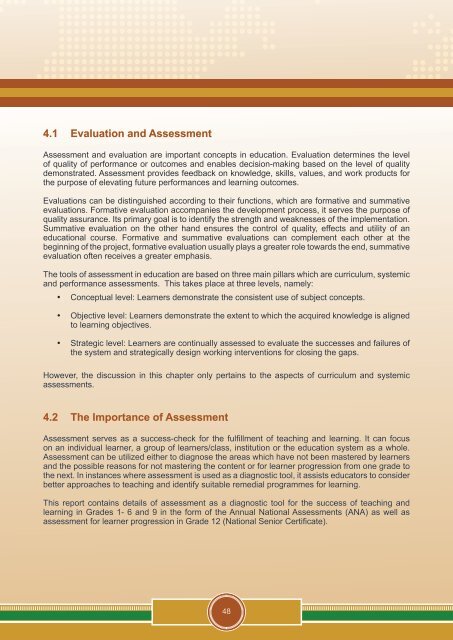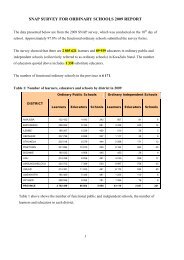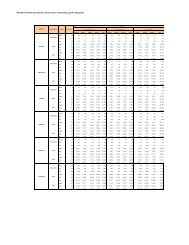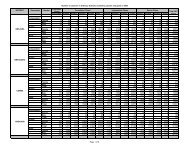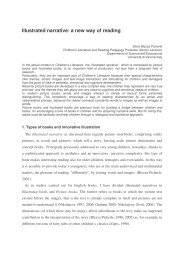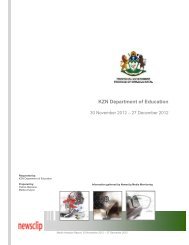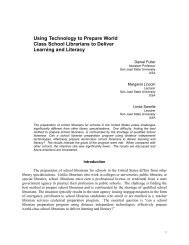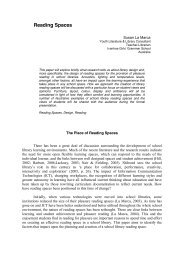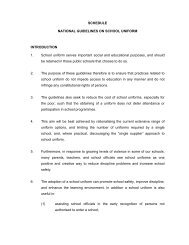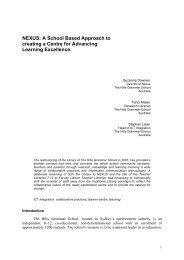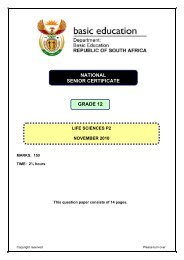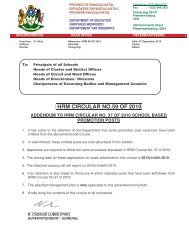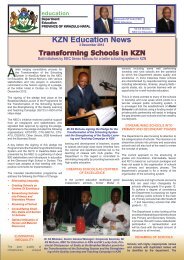School's Report 2012 National Senior Certificate (NSC) Examination
School's Report 2012 National Senior Certificate (NSC) Examination
School's Report 2012 National Senior Certificate (NSC) Examination
Create successful ePaper yourself
Turn your PDF publications into a flip-book with our unique Google optimized e-Paper software.
4.1 Evaluation and Assessment<br />
Assessment and evaluation are important concepts in education. Evaluation determines the level<br />
of quality of performance or outcomes and enables decision-making based on the level of quality<br />
demonstrated. Assessment provides feedback on knowledge, skills, values, and work products for<br />
the purpose of elevating future performances and learning outcomes.<br />
Evaluations can be distinguished according to their functions, which are formative and summative<br />
evaluations. Formative evaluation accompanies the development process, it serves the purpose of<br />
quality assurance. Its primary goal is to identify the strength and weaknesses of the implementation.<br />
Summative evaluation on the other hand ensures the control of quality, effects and utility of an<br />
educational course. Formative and summative evaluations can complement each other at the<br />
beginning of the project, formative evaluation usually plays a greater role towards the end, summative<br />
evaluation often receives a greater emphasis.<br />
The tools of assessment in education are based on three main pillars which are curriculum, systemic<br />
and performance assessments. This takes place at three levels, namely:<br />
• Conceptual level: Learners demonstrate the consistent use of subject concepts.<br />
• Objective level: Learners demonstrate the extent to which the acquired knowledge is aligned<br />
to learning objectives.<br />
• Strategic level: Learners are continually assessed to evaluate the successes and failures of<br />
the system and strategically design working interventions for closing the gaps.<br />
However, the discussion in this chapter only pertains to the aspects of curriculum and systemic<br />
assessments.<br />
4.2 The Importance of Assessment<br />
Assessment serves as a success-check for the fulfillment of teaching and learning. It can focus<br />
on an individual learner, a group of learners/class, institution or the education system as a whole.<br />
Assessment can be utilized either to diagnose the areas which have not been mastered by learners<br />
and the possible reasons for not mastering the content or for learner progression from one grade to<br />
the next. In instances where assessment is used as a diagnostic tool, it assists educators to consider<br />
better approaches to teaching and identify suitable remedial programmes for learning.<br />
This report contains details of assessment as a diagnostic tool for the success of teaching and<br />
learning in Grades 1- 6 and 9 in the form of the Annual <strong>National</strong> Assessments (ANA) as well as<br />
assessment for learner progression in Grade 12 (<strong>National</strong> <strong>Senior</strong> <strong>Certificate</strong>).<br />
48


